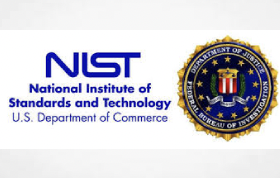In this episode of the Karma Koala podcast I speak to Dr Kavita Jeerage – Program Lead & Dr Jennifer Barry – Research Chemist @ National Institute of Standards and Technology about their research on breath test analysis for THC and whether that research might lead to creating tests for cannabis impairment.
There’s a while yet until the research is completed but if this is a topic that interests you it is definitely a conversation worth listening to, if only to understand the current thinking and where the process of research hopes to lead us.
National Institute of Standards and Technology
Dr Kavita Jeerage – Program Lead
Dr. Kavita M. Jeerage received a B.S. in Chemical Engineering from the University of Minnesota (1996) and a Ph.D. in Chemical Engineering from the University of Washington (2001). Her dissertation research with Professor Daniel T. Schwartz investigated electrochemically-controlled transition metal hexacyanoferrates for sequestering radiocesium and focused on determining alkali cation partitioning as a function of metal oxidation state. During several postdoctoral appointments, Dr. Jeerage continued to investigate electrochemical materials, sensors, and microfluidic actuation devices, one of which was patented in 2012. She joined NIST in 2006 and has worked on diverse projects in nanoparticle metrology and neurotoxicology. Dr. Jeerage is currently focused on determining the partitioning of drug analogues into fluid and solid phases by chromatography and the activation of membrane-bound receptors by endogenous and exogenous compounds, such as cannabinoids. She also manages the Cell Culture Facility. When she is not at the lab bench, Dr. Jeerage enjoys outdoor adventures with her husband, daughter, and dogs, discussions with her book club, and expanding her native plant garden.
Dr Jennifer Barry – Research Chemist
Jennifer L. Berry, PhD
Dr. Jennifer L. Berry, PhD, is an early-career research chemist at NIST that has extensive experience in mass spectrometry, instrument modification, and complex data analysis in the forensic, environmental, and atmospheric fields. Dr. Berry received her undergraduate degrees in chemistry and environmental science from the University of Michigan and her PhD in analytical chemistry from the University of Colorado Boulder.
Throughout her research career, she applied analyses and instrumental techniques in new research fields, ranging from the detection of prebiotic compounds in exoplanetary atmospheres to the use of new techniques to detect cannabinoids in breath. Dr. Berry started at NIST in 2020 and
initially worked on the development of a new extraction and concentration technique for detecting ignitable liquids from fire debris. She is currently the chemist that leads the laboratory processing and analysis of breath samples collected from cannabis users, in addition to the development of the protocol and training of staff for the collection of those breath samples.
About NIST
The National Institute of Standards and Technology (NIST) was founded in 1901 and is now part of the U.S. Department of Commerce. NIST is one of the nation’s oldest physical science laboratories. Congress established the agency to remove a major challenge to U.S. industrial competitiveness at the time — a second-rate measurement infrastructure that lagged behind the capabilities of the United Kingdom, Germany and other economic rivals.
From the smart electric power grid and electronic health records to atomic clocks, advanced nanomaterials and computer chips, innumerable products and services rely in some way on technology, measurement and standards provided by the National Institute of Standards and Technology.
Today, NIST measurements support the smallest of technologies to the largest and most complex of human-made creations — from nanoscale devices so tiny that tens of thousands can fit on the end of a single human hair up to earthquake-resistant skyscrapers and global communication networks.
Mission
To promote U.S. innovation and industrial competitiveness by advancing measurement science, standards, and technology in ways that enhance economic security and improve our quality of life.
Vision
NIST will be the world’s leader in creating critical measurement solutions and promoting equitable standards. Our efforts stimulate innovation, foster industrial competitiveness, and improve the quality of life.
Core Competencies
- Measurement science
- Rigorous traceability
- Development and use of standards
Core Values
NIST is an organization with strong values, reflected both in our history and our current work. NIST leadership and staff will uphold these values to ensure a high-performing environment that is safe and respectful of all.
- Perseverance: We take the long view, planning the future with scientific knowledge and imagination to ensure continued impact and relevance for our stakeholders.
- Integrity: We are ethical, honest, independent, and provide an objective perspective.
- Inclusivity: We work collaboratively to harness the diversity of people and ideas, both inside and outside of NIST, to attain the best solutions to multidisciplinary challenges.
- Excellence: We apply rigor and critical thinking to achieve world-class results and continuous improvement in everything we do.
Learn more at



















